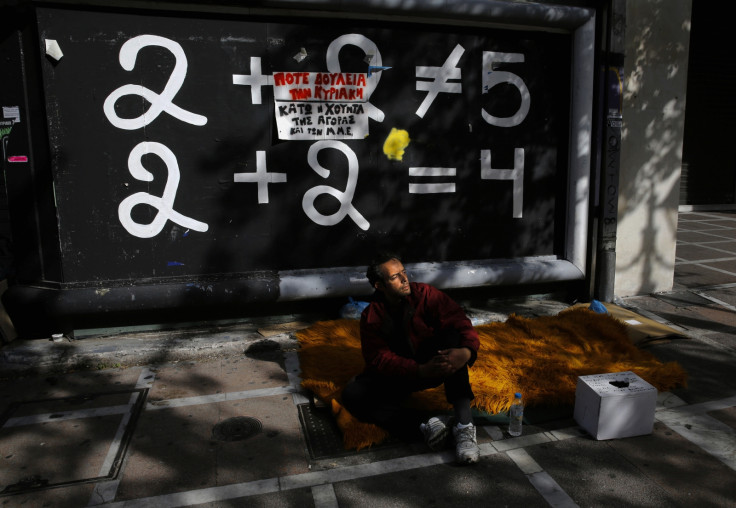How the Greek financial crisis has made its citizens physically and mentally ill

The conditions of austerity built into the quarter of a trillion euro bailout provided to Greece has cost many of its citizens their jobs, income, livelihoods - but now, new research shows it has also cost them their health.
Research was carried out by an Anglia Ruskin University economist, who surveyed over 21,000 citizens in Greece over the phone between 2008 and 2013. It revealed that widespread unemployment and austere living conditions across the country have had a severe impact on people's physical and mental health.

"During the 2010-13 period, Greece faced significantly lower labour demand, higher long-term unemployment, higher debt, and increased poverty, all of which may have had a detrimental effect on people's mental health," said Dr Nick Drydakis, a reader in Economics at Anglia Ruskin University.
"However, the severe economic effects of the financial crisis were not alleviated by public health policies. State funding for mental health decreased in Greece by 20% between 2010 and 2011 and by a further 55% between 2011 and 2012."
In 2010, Greece started to receive drip-fed tranches of a €240bn (£179bn, $271bn) bailout from the European Commission, the European Bank and the International Monetary Fund - dubbed the Troika - after racking up record levels of debt.
Greece had to significantly cut public sector jobs, make reforms to its tax, pensions and overall economy, in order to receive the emergency payments.
At the beginning of this year, Eurostat revealed that the unemployment rate across the eurozone has remained unchanged at 11.5% in November.
However, the latest data showed that Greece still remains the worst affected with 25.7% of its population out of work, while nearly 50% of young people in the country are jobless.
The shocking score

The research will be published in the March edition of the journal Social Science & Medicine. Greek citizens were asked to measure their physical health using a standard 1-5 scale, as excellent, very good, good, fair, or poor.
Drydakis found that the impact of the austerity programme saw the average unemployed Greek citizen's health decline by 10.5% between the level recorded in 2008-09, and that at taken at 2010-13.
To measure mental health, Drydakis used the CES-D scale, where the possible range of scores are seen from 0 to 60, with higher scores indicating the presence of more depressive symptoms.

The study showed that the mental health of unemployed Greek citizens deteriorated by 7.8% from 2008-09, to those seen in 2010-13.
However, even those in work reported that their mental health declined by 5.5% during the same period, as average levels of debt increase.
Overall Drydakis said that data showed that women were worse affected by unemployment than men.
"Equally a reduction in income can significantly restrict access to health care, such as purchasing medication. Indeed, the rate of self-reported unmet needs for medical care because care was 'too expensive' rose from 4.1% in 2009 to 6.3% in 2011," said Drydakis.
"During times of economic hardship, social protection responses are crucial for preventing or mitigating the adverse effects of unemployment on health status and mental health."
© Copyright IBTimes 2025. All rights reserved.




















